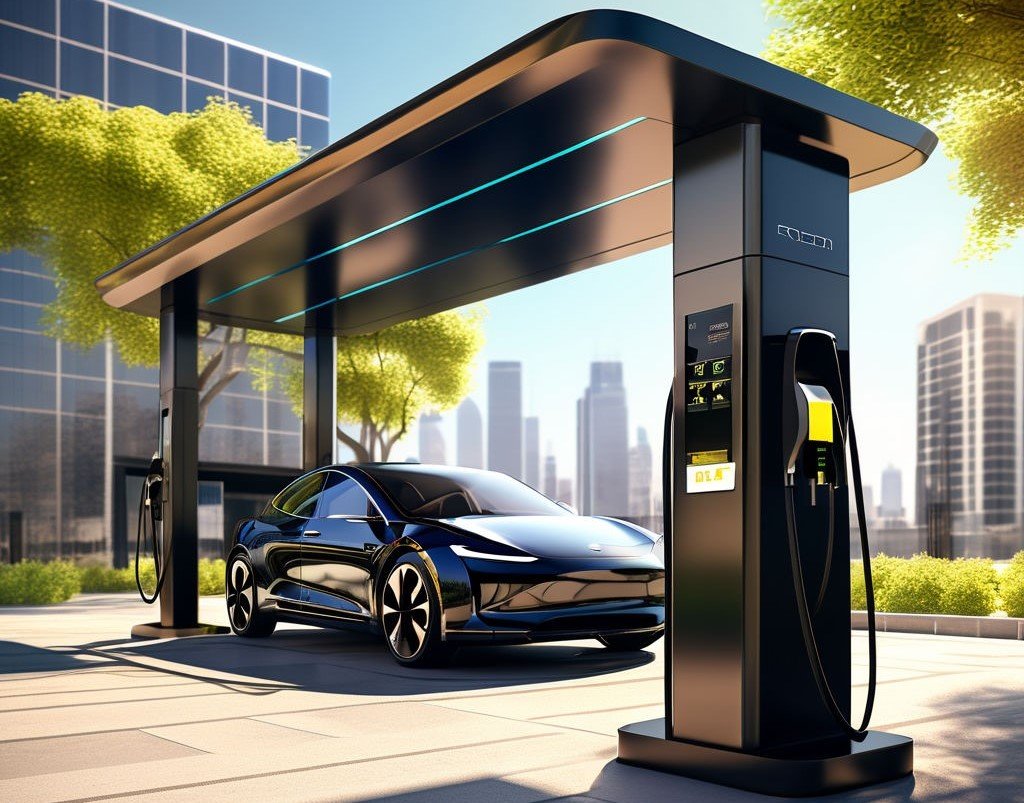
As the world accelerates towards a sustainable future, the integration of Electric Vehicle (EV) charging stations in corporate and commercial premises stands out as a beacon of environmentally conscious progress. In this blog we explore the transformative impact of EV charging infrastructure in business environments, detailing the benefits, trends, strategic brilliance and holistic benefits that unfold when businesses take deliberate steps to integrate EV Charging Stations, turning corporate spaces into hubs of sustainability, innovation, and positive change.
Driving Corporate Responsibility:
The installation of EV charging stations reflects a corporate commitment to environmental responsibility. By offering employees and visitors access to convenient charging, businesses contribute to reducing carbon footprints and fostering a culture of sustainability.
Attracting Top Talent:
As sustainability becomes a key factor for job seekers, corporations with EV charging stations enhance their appeal. Offering a green commuting solution positions companies as forward-thinking employers, attracting top talent who prioritize eco-friendly workplace practices.
Employee Well-being and Productivity:
Providing EV charging stations contributes to employee well-being. By supporting electric vehicle ownership, companies alleviate commuting stress and enhance the overall work-life balance of their workforce, positively impacting productivity and job satisfaction.
Sustainable Corporate Image:
EV charging stations become symbols of a company’s commitment to sustainability. This visible dedication resonates with customers, clients, and investors, enhancing the corporate image and fostering positive relationships within the community.
Meeting Regulatory Standards:
With an increasing focus on environmental regulations, corporations investing in EV charging infrastructure stay ahead of compliance requirements. This proactive approach not only avoids potential fines but also positions businesses as leaders in meeting and exceeding sustainability benchmarks.

Encouraging Green Fleets:
Corporations with large fleets can promote sustainable practices by incorporating electric vehicles. EV charging stations facilitate the transition to green fleets, reducing reliance on traditional fuel sources and aligning with global efforts to mitigate climate change.
Adaptability to Technological Shifts:
EV charging stations represent a corporate embrace of technological advancements in transportation. This adaptability positions businesses at the forefront of industry trends, showcasing a willingness to evolve with emerging technologies and stay ahead in a rapidly changing business landscape.
Strategic Alignment with Emission Reduction Initiatives:
Many corporations set emission reduction targets as part of their sustainability goals. EV charging stations play a crucial role in achieving these targets by encouraging the adoption of electric vehicles, which significantly contribute to reducing greenhouse gas emissions.
Cost Savings and Financial Incentives:
While the initial investment in EV charging infrastructure is notable, companies can benefit from cost savings in the long run. Additionally, governments and municipalities often offer financial incentives, tax credits, or grants to businesses that invest in sustainable initiatives like EV charging stations.
Revenue Generation and Return on Investment (ROI):
Beyond being a sustainable initiative, EV charging stations can be revenue-generating assets. Businesses can explore innovative pricing models, loyalty programs, and partnerships, turning the initial investment into a tangible return on investment while offering valuable services to customers and employees.
Enhanced Brand Reputation and Customer Loyalty:
The integration of EV charging stations enhances the corporate brand. Customers and clients appreciate businesses that actively contribute to environmental well-being. This positive perception can translate into increased brand loyalty and a competitive edge in the market.
Demonstrating Corporate Social Responsibility (CSR):
EV charging stations are tangible manifestations of corporate social responsibility. Embracing clean energy solutions showcases a commitment to mitigating climate change and reducing the carbon footprint, aligning businesses with global sustainability initiatives.
Conclusion:
The integration of EV charging stations in corporate and commercial premises transcends the functional aspect of providing charging infrastructure. It becomes a strategic move, aligning businesses with global sustainability goals, fostering corporate responsibility, and creating a workplace that embraces clean energy solutions.
As corporations invest in EV charging, they not only contribute to a greener planet but also position themselves as leaders in the sustainable business landscape, driving positive change for the future.




